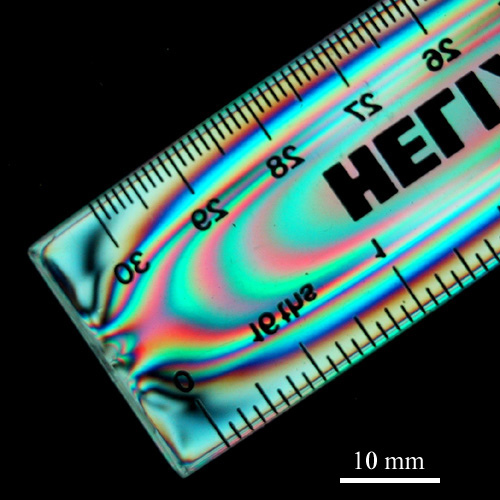Injection-moulded polystyrene ruler

Image by CORE-Components
DoITPoMS, University of Cambridge
The colours in the image are the outcome of birefringence and relate to the residual strain in the polystyrene. The pattern of strain is indicative of the flow of material for the duration of the injection procedure and it highlights the injection point (identified as a ‘gate’) at the finish of the ruler the molecular alignment is greatest near this point. Towards the edges of the ruler and along its length, the material becomes much more relaxed and as the molecular alignment falls, the retardation of light is much less. If heated above the glass transition temperature of polystyrene (about 100 deg C), the material will tend to unwind, particularly along the centreline, near the gate. This will outcome in a wrinkled kind.
Program
Polystyrene (PS)
Composition
Not specified
Reaction
Processing
Polystyrene was injected into a mould by way of an ‘edge gate’ at the finish of the ruler
Applications
Polystyrene is hard and affordable and its use is extremely widespread. CD situations and clear plastic cups are frequent examples. Domestic appliance casings are also typically made from PS
Sample preparation
Technique
Cross-polarised light microscopy
Contributor
J A Curran
Organisation
Division of Components Science and Metallurgy, University of Cambridge